Abstract
Pigeons were first exposed to a schedule providing food when the time between successive key pecks (the interresponse time) exceeded a specified duration. When food then was presented at regular intervals independent of responding (fixed-time schedule), responses typically occurred at a steady rate in the periods between successive food presentations. Once the birds had been exposed to a fixed-ratio schedule, however, response rate under fixed-time schedules was positively accelerated. Variations in the sequence of conditions given different subjects indicated that the changes in patterning were due to the fixed-ratio schedule, rather than to the number of transitions from a response-dependent to the response-independent fixed-time schedule, to changed parameter values, or to prolonged experience with the fixed-time schedule. The effects of fixed-time schedules on patterning depended upon experimental history.
Full text
PDF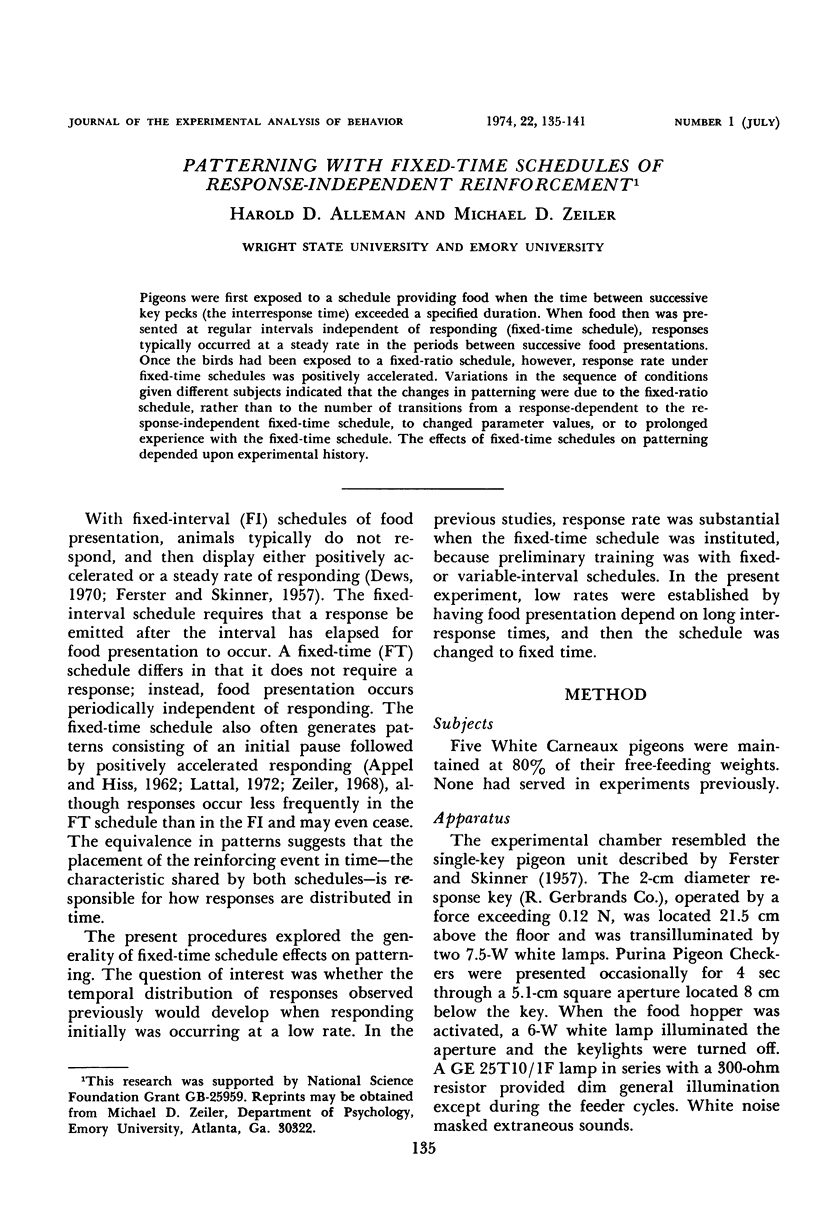
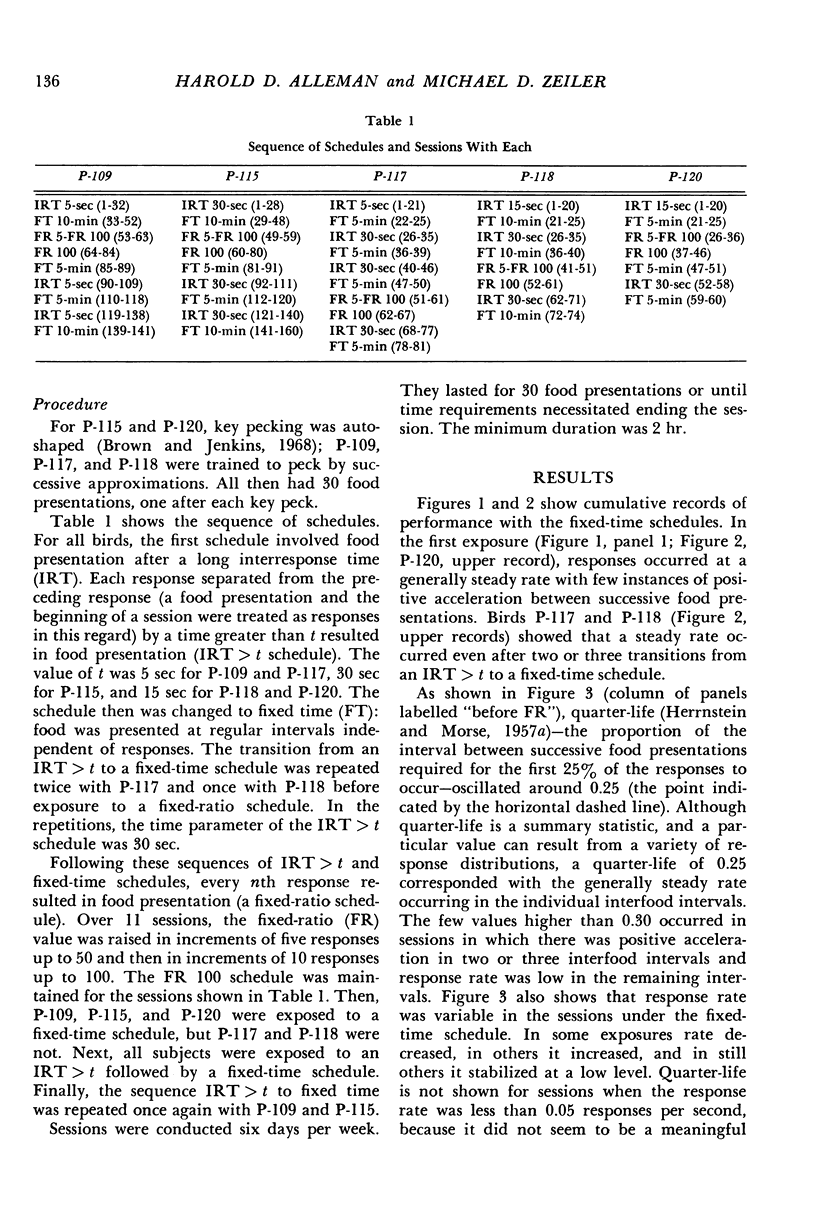
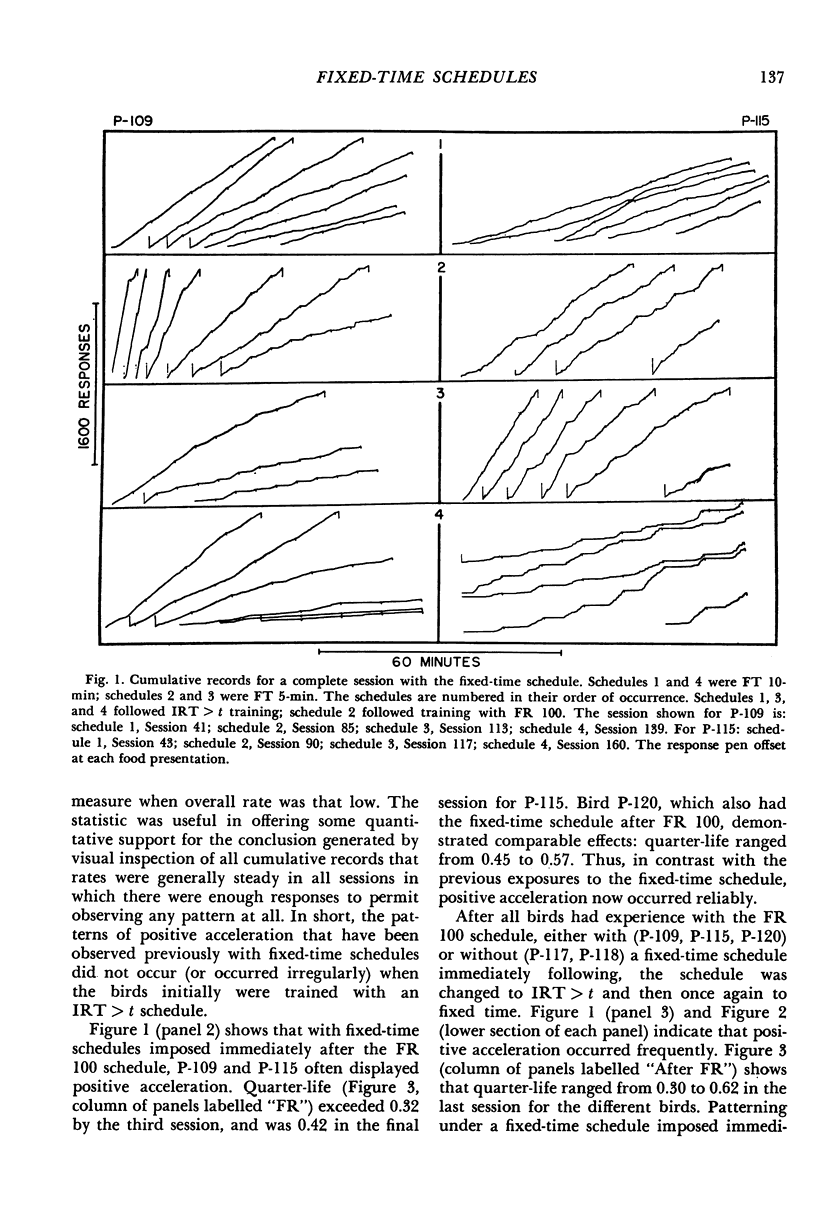
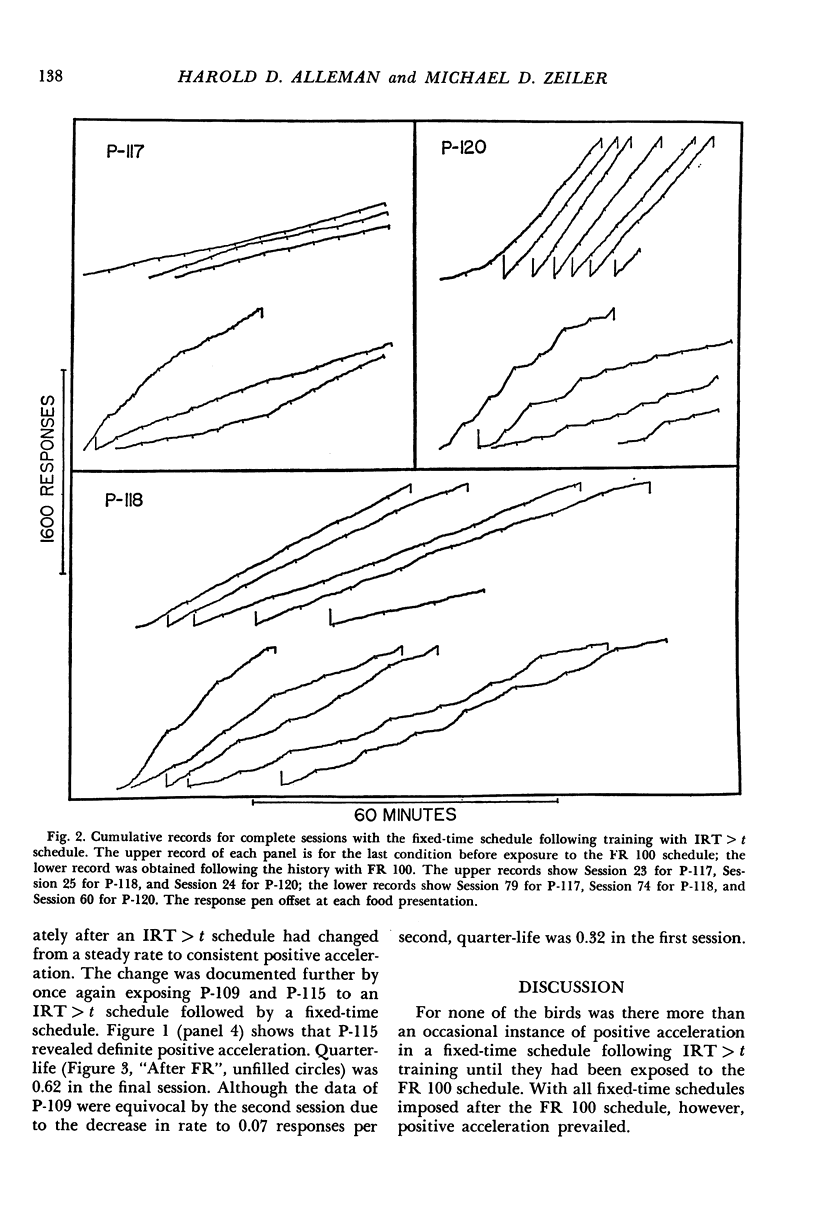
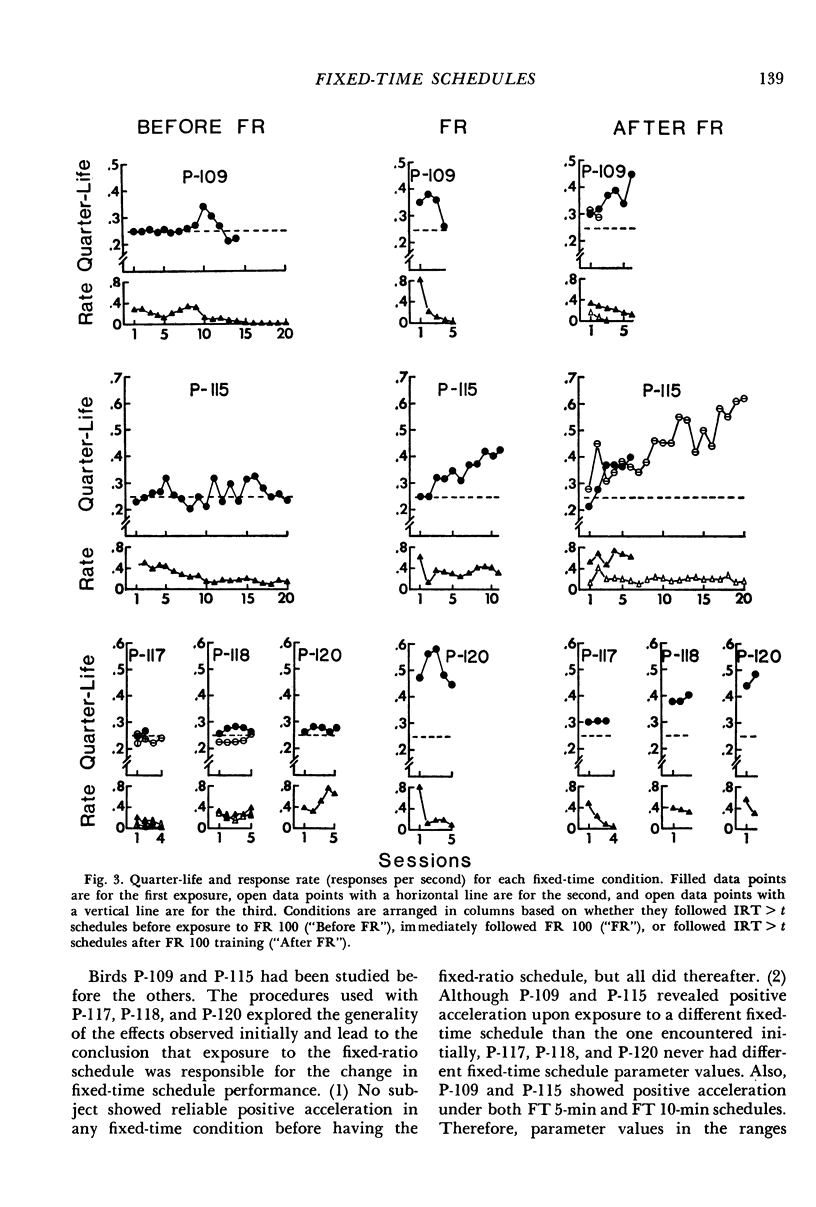
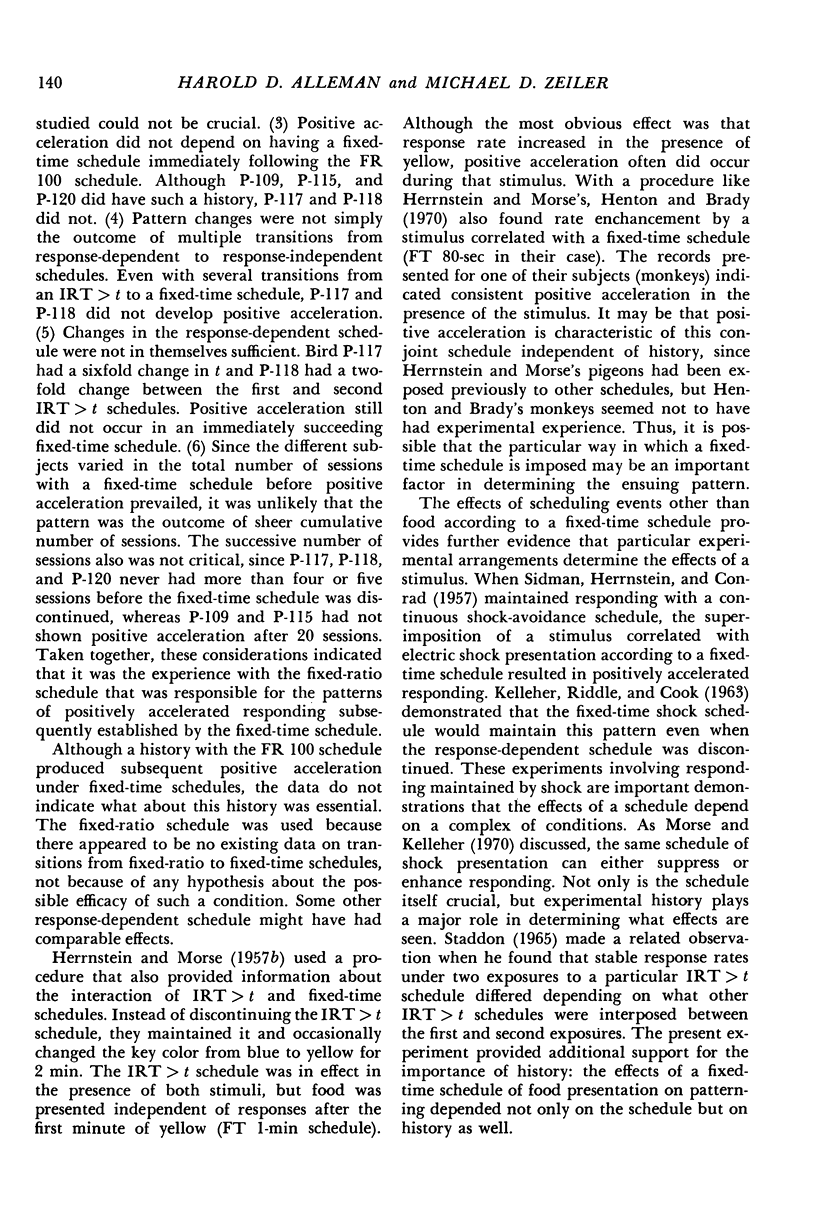
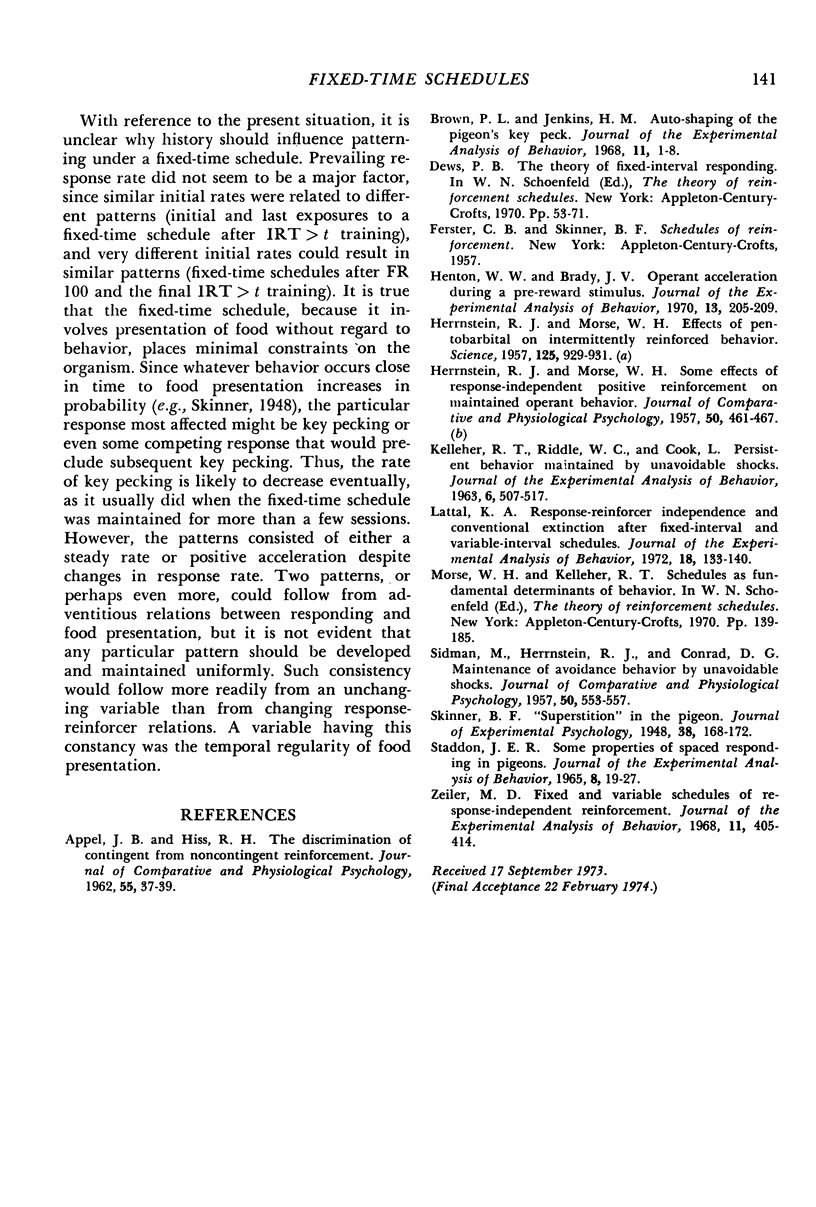
Selected References
These references are in PubMed. This may not be the complete list of references from this article.
- APPEL J. B., HISS R. H. The discrimination of contingent from noncontingent reinforcement. J Comp Physiol Psychol. 1962 Feb;55:37–39. doi: 10.1037/h0044613. [DOI] [PubMed] [Google Scholar]
- Brown P. L., Jenkins H. M. Auto-shaping of the pigeon's key-peck. J Exp Anal Behav. 1968 Jan;11(1):1–8. doi: 10.1901/jeab.1968.11-1. [DOI] [PMC free article] [PubMed] [Google Scholar]
- HERRNSTEIN R. J., MORSE W. H. Effects of pentobarbital on intermittently reinforced behavior. Science. 1957 May 10;125(3254):929–931. doi: 10.1126/science.125.3254.929-a. [DOI] [PubMed] [Google Scholar]
- HERRNSTEIN R. J., MORSE W. H. Some effects of response-independent positive reinforcement on maintained operant behavior. J Comp Physiol Psychol. 1957 Oct;50(5):461–467. doi: 10.1037/h0041506. [DOI] [PubMed] [Google Scholar]
- Henton W. W., Brady J. V. Operant acceleration during a pre-reward stimulus. J Exp Anal Behav. 1970 Mar;13(2):205–209. doi: 10.1901/jeab.1970.13-205. [DOI] [PMC free article] [PubMed] [Google Scholar]
- KELLEHER R. T., RIDDLE W. C., COOK L. PERSISTENT BEHAVIOR MAINTAINED BY UNAVOIDABLE SHOCKS. J Exp Anal Behav. 1963 Oct;6:507–517. doi: 10.1901/jeab.1963.6-507. [DOI] [PMC free article] [PubMed] [Google Scholar]
- Lattal K. A. Reponse-reinforcer independence and conventional extinction after fixed-interval and variable-interval schedules. J Exp Anal Behav. 1972 Jul;18(1):133–140. doi: 10.1901/jeab.1972.18-133. [DOI] [PMC free article] [PubMed] [Google Scholar]
- SIDMAN M., HERRNSTEIN R. J., CONRAD D. G. Maintenance of avoidance behavior by unavoidable shocks. J Comp Physiol Psychol. 1957 Dec;50(6):553–557. doi: 10.1037/h0043500. [DOI] [PubMed] [Google Scholar]
- STADDON J. E. SOME PROPERTIES OF SPACED RESPONDING IN PIGEONS. J Exp Anal Behav. 1965 Jan;8:19–27. doi: 10.1901/jeab.1965.8-19. [DOI] [PMC free article] [PubMed] [Google Scholar]
- Zeiler M. D. Fixed and variable schedules of response-independent reinforcement. J Exp Anal Behav. 1968 Jul;11(4):405–414. doi: 10.1901/jeab.1968.11-405. [DOI] [PMC free article] [PubMed] [Google Scholar]


